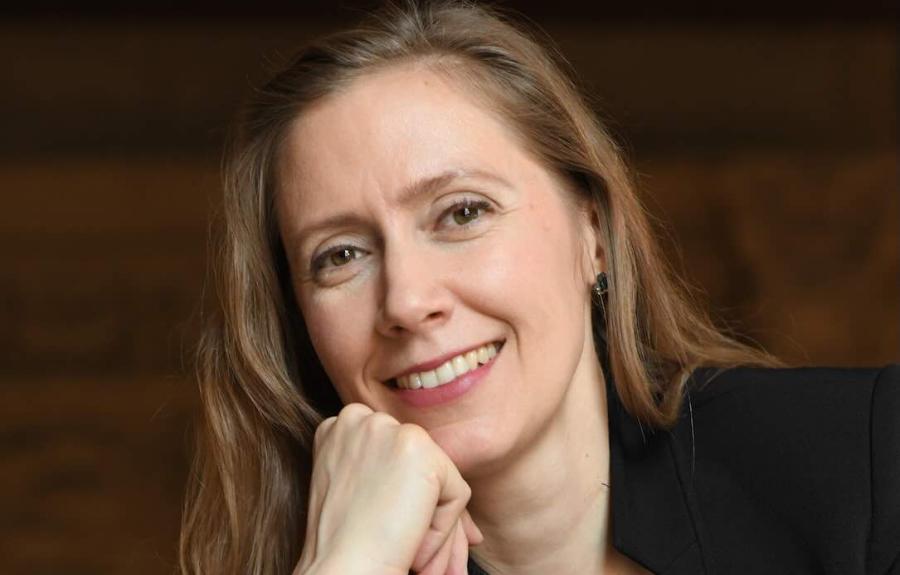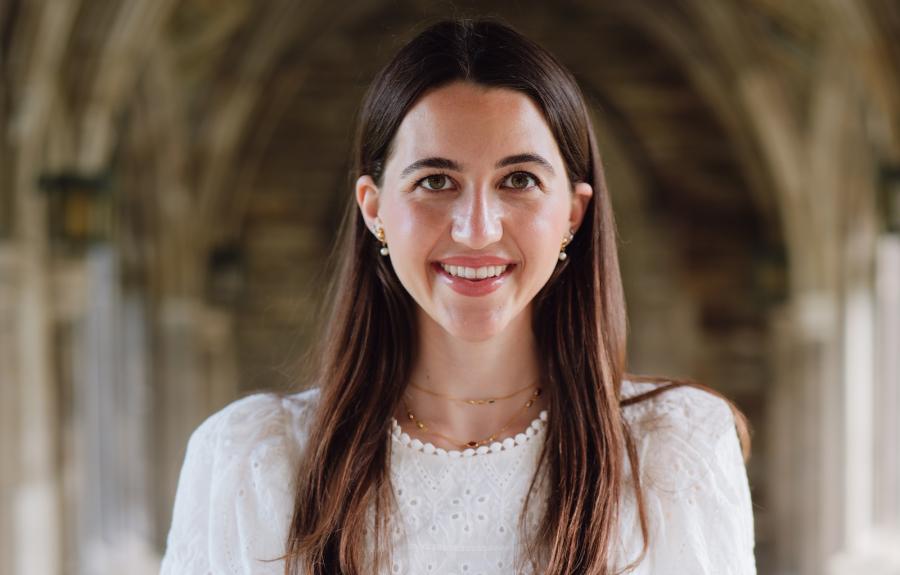Larry Smith (father of Grant Smith, Comp Lit '25)
"I recently had the privilege of attending the 2025 Cornell graduation ceremony to celebrate my son, Grant and his amazing educational experience. Grant completed a dual major of German and Comparative literature. My wife and I found the Comparative Literature departmental ceremony to be very meaningful, profound and relevant. We had a six-hour car ride back home to Boston, so we had ample time to reflect on the weekend! As busy parents with three children and full-time careers, we rarely get the chance to fully grasp the value of our children’s educational experiences. Professor Caruth and her colleagues took the time to not only personally recognize each graduate, but they also explained the context and power of Comparative Literature in a way that made us reflect on the power of it.
Reading written works from the voices of authors from different cultures, time periods, languages, and genres in a comparative way and how it reflects and shapes cultural contexts can provide meaningful clarity and perspective in dealing with complex cultural issues. Needless to say, balanced perspective is difficult to find in today’s biased, echo-chamber world. It dawned on me, from attending this graduation event, that the educational discipline of comparative literature is a very worthwhile educational endeavor to stimulate young minds, but also could be utilized more to provide much needed context in a misinformed world. I am grateful my son was able to have this experience at Cornell."
John McClure (Ph.D. Engineering)
"Part of what prompted my contribution is the distressing news I've read lately about colleges and universities scaling back or eliminating departments such as yours. With all the interpersonal problems we see in the world, the last thing we need is an assault on the humanities. I see comparatists building connections between peoples and between people and our legacy of literature, and the intellectual environment you've created feels like the perfect antidote to my concerns. Thank you for that and I look forward to supporting you in the future."
Constantin Shishkin (Comp Lit '07)
"The greatest benefit of being a Comparative Literature major is the gift of deep critical thinking that is wrapped in an incredibly exciting wrapper of some of the world's most stimulating, and frequently yet-to-be-discovered, works of literature. Learning to think, learning to write, and learning the craft of storytelling are foundational to every possible professional pursuit."
Kent Davis-Pacard (Comp Lit '00)
"My time as a Comparative Literature major at Cornell led me to re-evaluate all my previously held notions of right and wrong, good and bad, friend and enemy...through the unhindered and freeing experience of identification with characters of every background and belief system. Because of this probing of the depths of human experience, and exposure to passionate professors - some of whom were well known artists and writers in Paris and the Maghreb, and poets from Latin America - I came to recognize the importance of the study of literature in every field and walk of life. As a professor of international relations at Johns Hopkins University, political officer for the State Department, and now, founder of a nonprofit, I see the power of language - and more so the power of language inspired by love - to open channels of the heart that have been previously numbed by social barriers to recognizing human unity."
Rebecca Sparacio (Comp Lit '24)
"Being a comparative literature minor expanded my worldview and allowed me to develop as a critical thinker and writer (skills that are translatable to any career). One of the most impactful courses I took was Literary Theory on the Edge, which introduced me to the study of testimony, trauma theory, and psychoanalytic literary analysis. This widened my understanding of how literature can serve as a lens through which we examine human experience. In addition, the comparative literature department is a wonderful, intellectually curious, and supportive community."
Hanako Yamasaki (Comp Lit '25)
"In the Department of Comparative Literature, I was able to examine literature and theory across national boundaries, while simultaneously laying the groundwork to question the nature of those boundaries."
Sophie Gross (Class of 2027)
"Becoming a Comparative Literature major has been the best decision I have made during my time at Cornell thus far. I have not only been exposed to new realms of thought and literature through each class I take, but those classes have fundamentally altered the way in which I engage with the world, in particular, Introduction to Critical Theory and Literature and Science. The Comparative Literature major has been a crucial part of my intellectual and personal development in college which I am sure will extend its influence throughout the rest of my life."
Andrew Leibowitz (Class of 2028)
"To say engineering and comparative literature are mutually exclusive is to misunderstand the fundamental nature of both. Many think of them as an apple to an orange: distinct, incompatible and incomparable. But in Derrida’s terms, it is more productive to see them as systems of difference: structures built upon signs, substitutions, and relational meaning. Engineering, particularly in fields like artificial intelligence or synthetic biology, does not operate in a vacuum of numbers and code, rather it interprets, predicts, and models the world through signs, languages, and abstractions. Binary code in AI and nucleotide sequences in DNA both function as symbolic systems, encoding meaning in forms that are legible only through structured interpretation. Similarly, comparative literature examines how meaning emerges through difference: across languages, genres, cultures, and histories.At their core, both are driven by the desire to understand and reconfigure the world through systems of meaning. To study engineering and comparative literature together is not to bridge a gap, but to recognize that there was no true divide to begin with."






